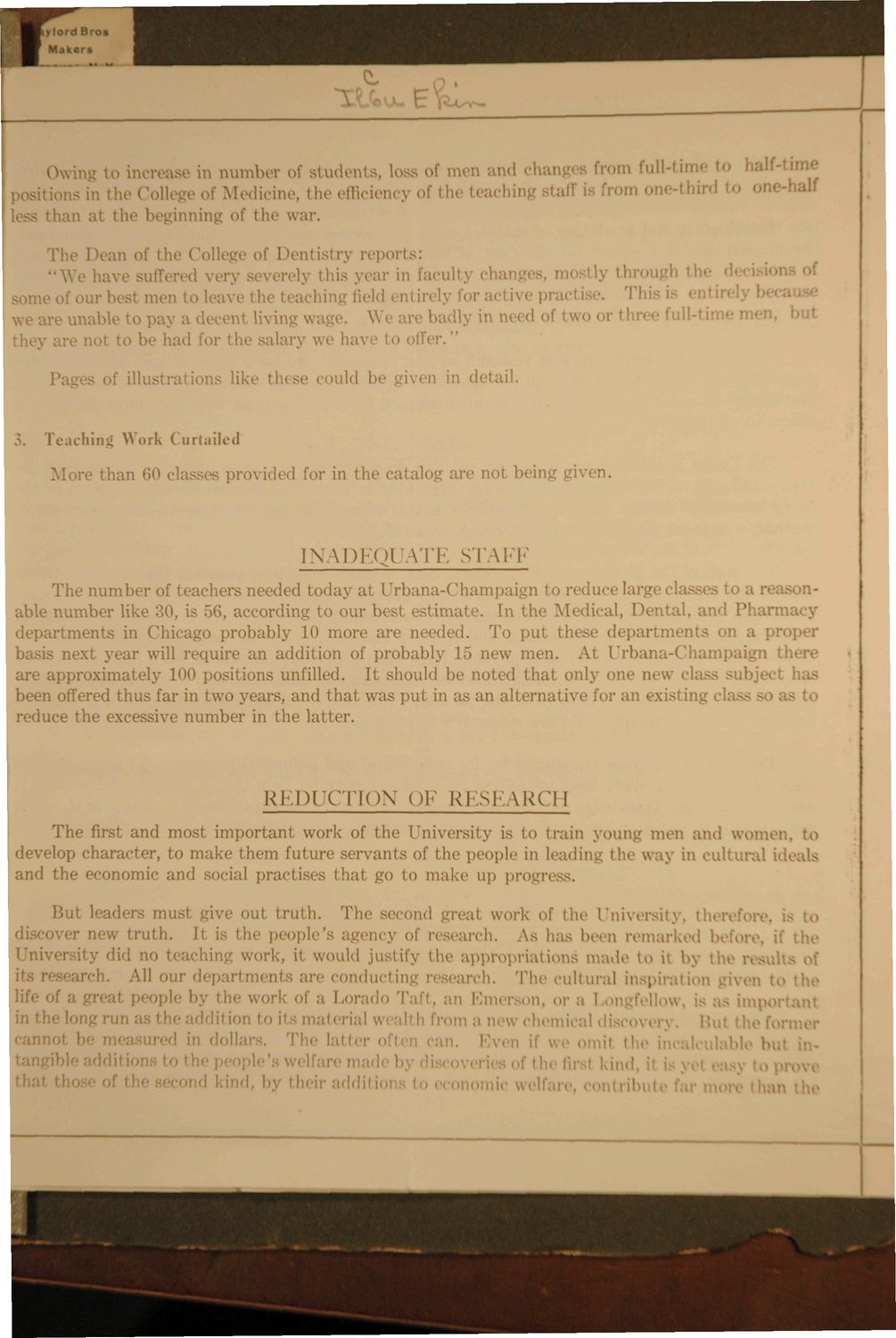Caption: Booklet - State of University (1920)
This is a reduced-resolution page image for fast online browsing.

EXTRACTED TEXT FROM PAGE:
ylord Bros Makers C i e i full-l ni d' lf p K Owing to increase in number of studenl of men and char in tin >1 o( Medicine, the efficiency of the I :hing staff is I 1< than at the I inning of the war. The Di n of the College of Dentistry reports: "We have suffered very severely this y« r in facul ch ,m < throu m( irl men to leave th< ihing field for active practise. Thi w unable ai nl living w; We: badly in n d of two or tl fullo be had for the salary ^ ha\ » offer." Pa* > illus f like these could be given in detail. Teaching Work Curtailed More than 60 el; provided for in the catalog are not being given IXADKQl ATK STAKh * I > The number of teachers needed today at Urbana-Champaign to reduce la cla \ r onable number like 30, is 56, according to our best stimate. In the Medical, Denial, and Pharm; departments in Chicago probably 10 more are needed. To put th departments a a | r basis next year will require an addition of probably 15 new men. At Urbai - im < n th e are approximately 100 positions unfilled. It should be noted that only one new cl been offered thus far in two years, and that was put in as an alternative for an existing clas reduce the excessive number in the latter. REDUCTION OF RESEARCH The first and most important work of the University is to train young men and women, develop character, to make them future servants of the people in leading the way in cultural ideal and the economic and >cial practises thai go to make up progress. But leaders must give out truth. The second great work o{ the Qniversit; new truth. It is the people's agency of research. As has been remarked I •live did no t< hing work, it would justify the appropriations made to ii by tl r< All our departments are conductii tarch, The cultural inspi ition life of a great \ >ple 1 the wo of a Lorado Ta m Em< >n, ov a 1 ongfellow, in ion to i materials h from a new chemi< Mi »< v Bu nn I ' in doll; The latter o an. Even if \ i -.it tl to i I ri Hi, fir ind I, by > ii ddition io; ribut if th
|